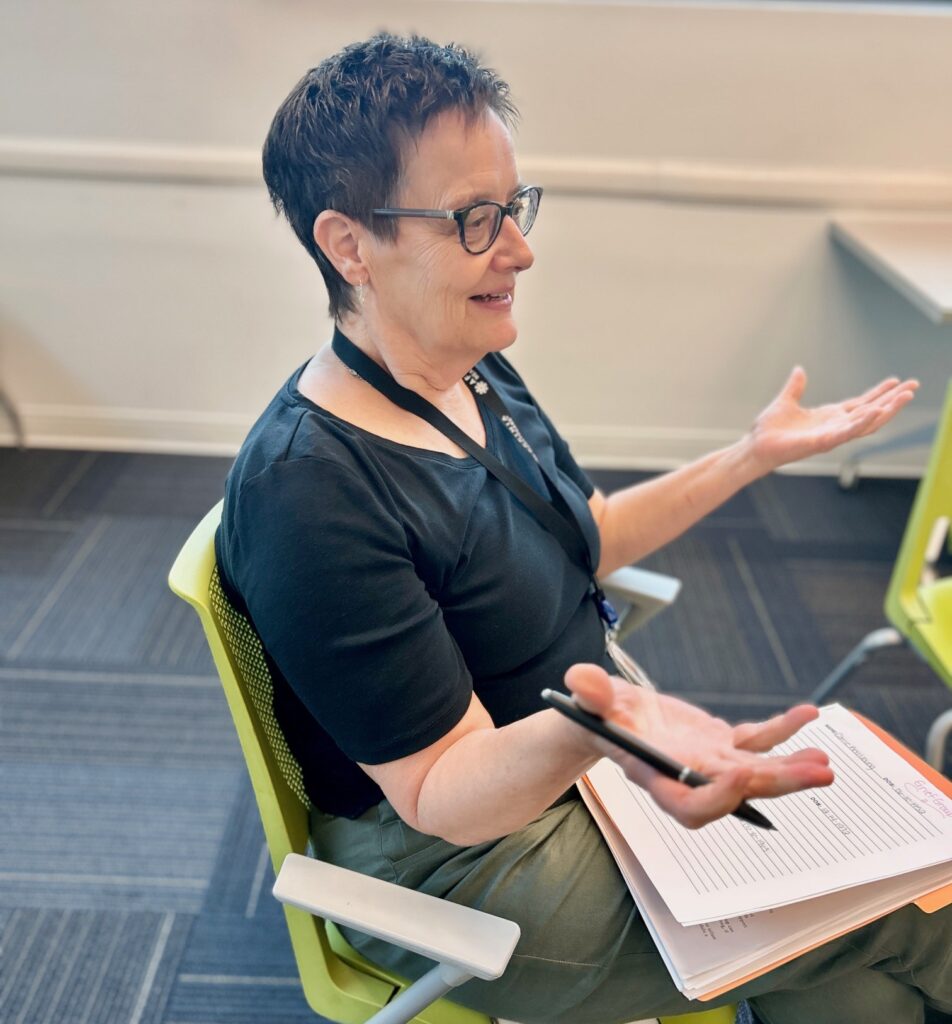Grief support group for women expands mental health offerings for community health center
Affinia Healthcare is expanding its mental healthcare offering with a new women’s grief support group.
The new group is designed to help patients process their grief resulting from the loss of loved ones, or other mental stressors. The grief support sessions meet the first Wednesday of each month for two hours at the Affinia Healthcare location at 4414 N. Florissant.
Certified Nurse-Midwife (CNM) Rebekah Hassler, who leads the group, said her patients had similar experiences of grief and loss and felt beginning a support group would be helpful.
“I was seeing individual women for grief support, and I recognized there were others who had similar experiences,” said Hassler. “One of the things I hear most often from the women in the group is that they don’t feel so alone. The grief group normalizes grief which so often our culture does not.”
The women share about who they have lost — from the loss of a child to gun violence to the loss of a spouse or partner.
Hassler, in addition to being a CNM, also has a master’s certification in Spiritual Direction from the St. Thomas Aquinas School of Theology. She has experience working as a bereavement coordinator and hospital chaplain in Hospice, Labor & Delivery, and Neonatal Intensive Care Unit. She completed a certification in the Advanced Evaluation & Management of Psychiatric Illness in Reproductive-Age Women from the American College of Nurse Midwives and is completing a Perinatal Mental Health Certification from Postpartum Support International.
Providing a safe space for women to feel comfortable in sharing their grief, as well as to feel connected to others was part of the hope for Hassler. “One woman told me that she is learning so much about grief and that it is helping her in understanding her own process of grief. Another woman told me, ‘I just didn’t even know how much I needed this’,” Hassler explained.
According to the National Library of Medicine, 10 percent of bereaved individuals will develop a prolonged grief condition, while most individuals can navigate through a period of intense acute grief that lessens with time. Researchers also found that support groups may be a useful source of social support after a loss and can help prevent a prolonged grief condition.
While the N. Florissant group is in the early stages and continuing to evolve, Hassler emphasizes the group can share whatever they feel necessary. “I want to stress that people can share what they’re comfortable sharing, if they don’t want to share anything, they’re not obligated,” Hassler said.
In May, a separate grief group formed to specifically discuss perinatal loss from a miscarriage, fetal or infant loss.
“This type of loss is so hard, and it feels almost like an invisible grief,” Hassler said. “I just want to provide a space where they don’t feel so alone in their grief.”
Affinia Healthcare also offers behavioral health services for adults and children. Parents can schedule a youth appointment with the Child Development Center directly by calling 314.814.8616.
Group grief sessions, including adult behavioral health care, are available for Affinia Healthcare patients only. Adult patients can receive services through a referral from their Affinia Healthcare provider. To schedule an appointment with a provider, call 314.814.8700.


